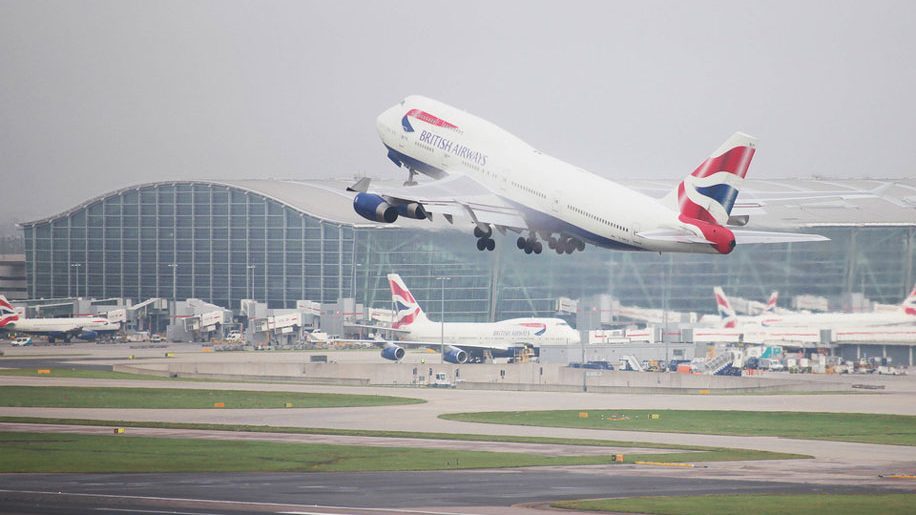Eu Slot Allocation Regulation
'For their part European airports are predicting a loss of 67 million passengers in the first quarter of 2020.'1 Without a doubt, the aviation sector has been one of the sectors most immediately and severely affected by the sudden outbreak of COVID-19 , as evidenced by the dramatic drop in airline passenger numbers. One of the main concerns relates to the liquidity of aircraft operators and airlines but other issues include a surge in passenger claims for both delayed and cancelled flights.2 Whether or not a passenger stands to benefit from any form of compensation as a result of a cancelled flight is dependent on the interpretation of the term 'extraordinary circumstances' and accordingly, not only does one case differ from another, but the situation on a given day may be very different just a couple of days later.3
Airport slots are permits allocated to airlines to use airport facilities for takeoff and landing on a specific day and at a specific time. To address growing airport congestion in the European Union, the Commission is proposing to allow market-based mechanisms in slot trading and allocation, increased transparency in slot transactions, and greater independence for slot coordinators. CONSOLIDATED VERSION of regulation N°95/93 Council regulation (EEC) N°95/93 of 18 January 1993 on common rules for the allocation of slots at Community airports Regulation (EC) N°793/2004 of the European Parliament and of the Council of 21 April 2004 amending the Council regulation (EEC) N°95/93 on common rules for the allocation of slots at Community airports. Carriers under the existing allocation rules. Currently, the allocation of slots in the EU is an administrative procedure gov-erned by EC Council Regulation 95/93 (as amended). The regulation defines slot capac-ity available for allocation (a definition that, since the coming into force of Regulation 793/2004, also includes the use of airport. REGULATION (EU) 2020/ OF THE EUROPEAN PARLIAMENT AND OF THE COUNCIL of 30 March 2020 amending Council Regulation (EEC) No 95/93 on common rules for the allocation of slots at Community airports (Text with EEA relevance) THE EUROPEAN PARLIAMENT AND THE COUNCIL OF THE EUROPEAN UNION.
How has the European Union responded?
The European Commission has recently concluded a proposal to amend Regulation (EEC) No 95/93 on common rules for the allocation of slots at Community airports (the 'EU Slots Regulation') by temporarily relieving air carriers of their obligations under European Union law, with respect to airport slot usage (the 'Proposal').4 Such a proposal is a response of the European Union to the deteriorating circumstances currently faced by airlines as European air carriers have been forced into grounding aircraft for an uncertain period of time. The Proposal recognises the disadvantages of the current regulatory framework which encourages air carriers to continue to operate empty and unnecessary flights, simply to protect their 'grandfather rights'. Not only does such a sustainability measure contribute to the financial health of air carriers but it also mitigates the environmental impact of ghost flights.
To date, the Proposal is yet to be adopted and is awaiting approval by the European Parliament and Council of the European Union.
How are airport slots currently regulated?
The EU Slots Regulation regulates the manner in which slots located in European Union airports are allocated to air carriers. Presently, the EU Slots Regulation adopts a 'use it or lose it' approach which requires air carriers to operate a certain percentage of their allocated slots or else risk losing their rights to such slots in the future. Accordingly, air carriers must use a minimum of 80% of their allocated slots within a given time period in order to retain such slots in the same period of the following year (these have been termed 'grandfather rights').
How does the Proposal amend the EU Slots Regulation?
The Proposal suggests the replacement of Article 10a of the EU Slots Regulation. The new article includes an assumption that coordinators shall consider the allocated slots 'as having been operated by the air carrier to which they had initially been allocated', notwithstanding that the respective air carrier was unable to meet the 80% requirement. Accordingly, the slots shall be considered to have been operated for the period beginning 1 March 2020 until 30 June 2020. The new Article 10a also provides for the inclusion of an additional, earlier period from 23 January 2020 until 29 February 2020. The date of 23 January 2020 corresponds with the closure of the Wuhan Airport in the People's Republic of China, by the authorities. Likewise, between this period, with respect to slots used for flights operating between the European Union and the People's Republic of China or in the Hong Kong Special Administrative Region of the People's Republic of China, such slots shall also be considered as having been operated.
However, such a protective measure can only be applied in the context of existing slot allocations and thus with respect to any cases which arise following the application of the said Proposal, the respective slots are to be returned to the slot coordinator.
The same Article 10a also empowers the European Commission to adopt delegated acts should the aviation industry continue to be negatively impacted by virtue of the crisis surrounding the COVID-19 outbreak.
Footnotes
1 Commission, 'Proposal for a Regulation of the European Parliament and of the Council amending Regulation (EEC) No 95/93 on common rules for the allocation of slots at Community airports' COM (2020) 111 final, 1.
2 On this point reference is to be made to Regulation (EC) 261/2004 of the European Parliament and of the Council establishing common rues on compensation and assistance to passengers in the event of denied boarding and of cancellation or long delay of flights, and repealing Regulation (EEC) No 295/91 [2004] OJ L46/1.

3 Ibid., Recital 15; '[e]xtraordinary circumstances should be deemed to exist where the impact of an air traffic management decision in relation to a particular aircraft on a particular day gives rise to a long delay, an overnight delay, or the cancellation of one or more flights by that aircraft, even though all reasonable measures had been taken by the air carrier concerned to avoid the delays or cancellations.'
4 Commission, 'Proposal for a Regulation of the European Parliament and of the Council amending Regulation (EEC) No 95/93 on common rules for the allocation of slots at Community airports' COM (2020) 111 final.
The content of this article is intended to provide a general guide to the subject matter. Specialist advice should be sought about your specific circumstances.
 Technical Aspects Of Aircraft Leasing (Part 1 Of 2)
Technical Aspects Of Aircraft Leasing (Part 1 Of 2)Eu Slot Allocation Regulation Rules
Eu Slot Allocation Regulations
ELIG Gürkaynak Attorneys-at-Law
Poul Schmith
Meyerlustenberger Lachenal Ltd.
Meyerlustenberger Lachenal Ltd.

Meyerlustenberger Lachenal Ltd.
The amending EU Slot Regulation has now been officially published in the Official Journal, as Regulation 2020/459 on common rules for the allocation of slots at Community airport (see our post on the urgent written procedure followed and the Council’s final approval yesterday).
As mentioned in earlier posts, the aim of this measure is to address the sharp drop in air traffic as a result of a significant fall in demand and direct measures taken by the Member States as well as third countries to contain the COVID-19 outbreak, and to mitigate the obligation of air carriers under Article 8(2) of Council Regulation 95/93, read in conjunction with Article 10(2) thereof, where the failure by an air carrier to operate at least 80% of a series of slots which it has been allocated at a coordinated airport threatens the historical precedence for those slots.
The amending Regulation takes into account forward bookings and epidemiological forecasts finding that it is reasonable to expect that there will be a significant number of cancellations attributable to the pandemic in the period between 1 March 2020 and at least 24 October 2020. Therefore, it provides in Article 1 that ‘for the purposes of Articles 8(2) and 10(2), coordinators shall consider slots allocated for the period from 1 March 2020 until 24 October 2020 as having been operated by the air carrier to which they were initially allocated’. That situation is expected to be under the continuous review of the Commission, which is also empowered by virtue of this measure to take further urgent Delegated Acts to address further related issues.
The amending Regulation will enter into force tomorrow, 1 April 2020.
Access the Regulation in the Official Journal here.